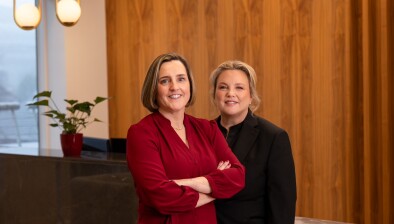High Court: Application for direction extending defamation limitation period refused

The High Court has refused an application to extend the one-year limitation period for defamation actions in respect of allegedly defamatory publications about a Jack and Jill Foundation board member.

About this case:
- Citation:[2025] IEHC 284
- Judgment:
- Court:High Court
- Judge:Mr Justice Oisín Quinn
Delivering judgment for the High Court, Mr Justice Oisín Quinn found that the plaintiff could achieve vindication in relation to a 2023 publication with the same meanings and could refer to the earlier publications in support of a claim for aggravated damages and/or an injunction, and so the prejudice suffered by the plaintiff by the refusal of her application would not outweigh the prejudice caused to the defendants by her delay.
Background
The plaintiff was a voluntary board member of the Jack and Jill Foundation since 2018. She previously provided services to Lefgem Limited, a company owned by her husband. Lefgem owns the Johnstown Estate and the hotel located thereon.
A number of luxury lodges located at the rear of the hotel were sold to investors in 2004, intending to provide investors with the benefit of holiday home tax relief. The lodges would be operated as part of the hotel with the owners receiving a certain amount of income from the rental of the properties.
No provision was made for the supply of services such as gas, water, electricity and sewage separately to those of the estate. In June 2015, the sale of the Johnstown Estate and Hotel to Lefgem did not include the lodges, although it subsequently acquired 29 of them. The estate disconnected services from the lodges over which it had no interest.
The first and second defendant acquired interests in lodges from which services were disconnected. In August 2021, the first defendant sent emails to the CEO and Head of Fundraising at the Jack and Jill Foundation complaining in respect of the removal of services to the lodges and expressing surprise as to the charity’s connections to “people like this”. The second defendant telephoned the charity to warn that it “should be concerned about being associated with” the plaintiff.
A further allegedly defamatory publication about the plaintiff was made in July 2023 by the first defendant.
In August 2023, the plaintiff issued proceedings claiming damages (including aggravated and punitive damages) for defamation in respect of the publications.
The plaintiff subsequently made an application pursuant to s.11(2)(c) of the Statute of Limitations 1957 (as amended) extending the usual one-year limitation period for bringing defamation proceedings to two years, thereby bringing her claim in respect of the August 2021 publications within the statutory limitation period.
The plaintiff explained that she delayed in issuing proceedings as she did not want to cause trouble for the charity when it was struggling due to issues caused by the Covid-19 pandemic and that home-schooling her three young children during the pandemic had the result that “the statements made by the defendants did not receive the consideration they perhaps deserved”.
A further question arose at the hearing as to whether or not in the event that the application was unsuccessful, the plaintiff would seek to rely on the August 2021 publications in support of the plea that the publication in July 2023 was made maliciously.
The High Court
Mr Justice Quinn set out the relevant legislation and highlighted the body of authorities concerning the obligation on parties to defamation actions to bring and progress their proceedings expeditiously.
Noting that the authorities “make it clear that the onus of proof is on the plaintiff to adduce and advance clear and cogent evidence for the granting of the extension” and to “provide full and adequate information as to the particular reasons for the delay relied upon”, Mr Justice Quinn pointed out that the jurisdiction to extend time in the defamation context is for “exceptional cases”.
The court considered that the overall statutory test was set out in Quinn v Reserve Defence Force Representative Association [2018] IEHC 684, in which it was observed that the court is required “to carry out a qualitive assessment of the reason or reasons proffered for the delay. This involves a consideration of the quality and nature of the reason or reasons advanced and a weighing of the respective prejudices.”
Mr Justice Quinn also noted Joyce v Mayo Travellers Support Group [2023] IEHC 84 as authority to the effect that in considering the nature of the case, the court should assume that the plaintiff will be successful.
Finding that the statutory limitation period in respect of the August 2021 publications expired on 2 August 2022, the judge considered that the court could extend the limitation period up to 2 August 2023.
The court was not satisfied that the reasons given by the plaintiff were particularly cogent or persuasive, finding that “even on their own terms either separately or together or when considered in the round, they are unimpressive reasons”.
Furthermore, the court was unconvinced that the plaintiff suffered a type of psychological paralysis by virtue of the August 2021 publications and that only by July 2023 had the plaintiff recovered her courage.
In this regard, the court explained that “while there may be some scenarios where such a situation could arise (for example, such as in certain personal injuries cases involving historic abuse, or cases where a potential plaintiff is in the care of, or significantly under the influence of, or dependant on the putative defendant), then, if it does and it is to be relied upon by a plaintiff, it must be supported by proper, cogent evidence”.
Moving to consider whether relevant evidence was no longer capable of being adduced by virtue of the plaintiff’s delay, Mr Justice Quinn found the second defendant’s claim that he could no longer remember the August 2021 phone call to be “entirely plausible” in circumstances where he was first made aware of the claim on 29 August 2023 and was only given specifics of what he allegedly said upon the service of the statement of claim on him in August 2024.
Mr Justice Quinn proceeded to analyse the questions of whether the interests of justice required the extension of time and whether the prejudice to the plaintiff if the application were refused would significantly outweigh the prejudice to the defendants if the application were granted.
Noting that the plaintiff had not actually alleged that there had been any damage to her reputation, the judge considered: “The primary purpose of a defamation action is to vindicate the reputation of the plaintiff. The plaintiff has a claim which is within time in relation to the email of 14 July 2023 and which her counsel describes as ‘of a piece’ or ‘no more serious’ as the publications complained of in August 2021…”
In that regard, Mr Justice Quinn opined: “Accordingly, she has the prospect of being publicly vindicated in respect of a similar publication as against the same person who published the two earlier emails. This has to count as a significant matter both from the plaintiff’s perspective… The plaintiff can be vindicated in respect of the same meanings complained of in respect of the earlier publications if she succeeds in relation to her claim in respect of the 14 July 2023 email.”
Finding it “at least arguable” that the plaintiff could adduce in evidence the earlier publications in the trial about the July 2023 email, the High Court determined that it was by no means clear that the interests of justice required that a direction be made.
Mr Justice Quinn also held that in the circumstances, the prejudice to the plaintiff caused by the refusal of the application would not significantly outweigh that of the defendants’ should time be extended in circumstances where the defendants would be obliged “to defend a claim concerning publications in August 2021 issued well out of time and the detail of which was only notified to them in 2024”.
Conclusion
Accordingly, the High Court refused the application.
Catherine Logan v Peter Wilson and David Godwin [2025] IEHC 284











